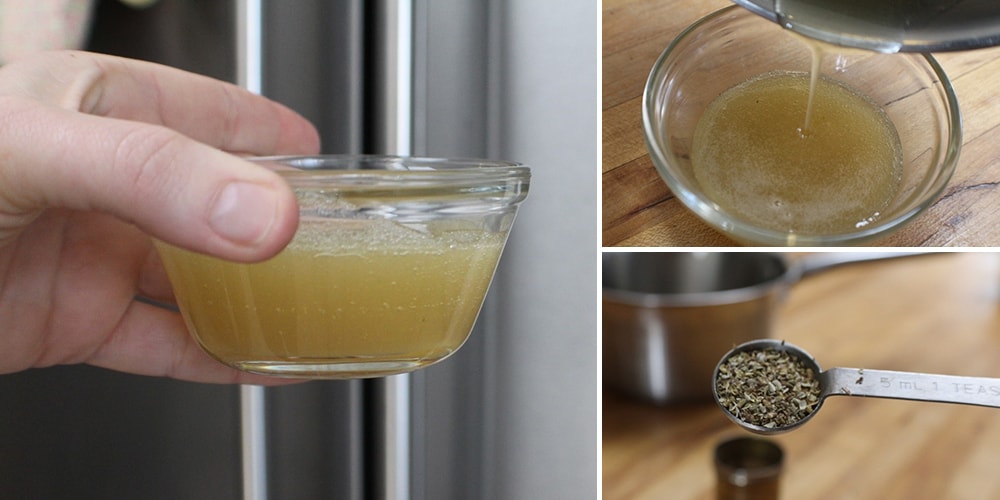
DIY Snore Relief Jelly In a Jar
Nothing can disrupt a good night’s rest as readily as the sound of restricted airflow, inflamed nasal passages, and subtle periodic choking that makes you wonder whether you should shake your partner or not! In other words, it isn’t the ideal sleeping situation.
Snoring also comes with risks for the person doing the snoring. In this article, we will examine those risks and why people snore in the first place. Then I’ll show you how to make a simple herbal snore-relief jelly to put right next to your bed at night.
Causes of Snoring
So why is snoring so bad? It may not seem like snoring is a big deal, especially because so many people do it. But it can actually be bad for your health. For example, people who snore have an increased risk of sleep apnea, sleep disorders, and even stroke. It can also be a side effect of some pretty significant health conditions, indicating that something in your body has already gone awry.
Here are a few potentially hazardous conditions that also have ties to excessive snoring: heart disease, arrhythmia, GERD, daytime sleepiness, anxiety, headaches, cognitive decline or weight gain.
Snoring can also disrupt sleep, even if you’re unaware of it. In fact, the chances of you waking up multiple times a night are quite likely if you’re a snorer. And persistent sleep disturbances come with their own set of health issues. You may also notice you wake up with a sore throat and a sore jaw. That’s likely because those that snore can also be teeth grinders, and your throat can dry out when air consistently flows through the mouth. Some of these are more serious problems. So, what causes people to snore in the first place?
The truth is that there is no one size fits all answer when it comes to the many reasons people snore. Some people are genetically endowed with jaw and facial structures that cause them to snore, while others do it because they’re congested, have allergies or are just plain knackered.
People snore when their ability to breathe has been restricted somehow. And usually, what happens is the snorer becomes so relaxed that tissue in the nose and throat becomes flaccid and starts blocking the flow of air. The air passing over these tissues forces them to vibrate as you breathe in. And it is this vibration that creates that snoring sound.
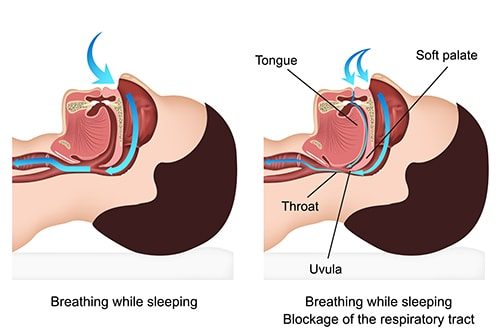
However, this obstruction can be caused by different things in different snorers. So, if you really want to find answers, it’s important to evaluate why you could possibly be snoring in the first place. Is it genetic or is it something else?
Here are a few facets that contribute to snoring. Addressing these can go a long way in identifying the root of your snoring problem and significantly impact how well your DIY Snore Relief Gel (recipe below) works. In addition, working to alleviate symptoms can help you focus more on the root cause of your snoring issue, as it allows you enough comfort to address possible factors of snoring better.
Things that can affect snoring include: alcohol, sedatives and sleeping pills allergies, weak throat muscles, excess weight, nasal congestion, sleep apnea, sleep deprivation, sleep position, sleeping with an open mouth, small nostrils (Nasal Resistance) or smoking.
⇒ What Happens When You Sleep On The Left Side? (Video)
Now that we’ve gone over some possible causes of snoring and some health issues that can come along with it, it’s time to figure out what you can do about it! For centuries, various cultures, plant lovers, and DIYers have been using natural herbal remedies to help alleviate breathing problems, including snoring. The anti-inflammatory and airway-opening features of the snore relief herbs used in this remedy may be just what you need to help you and your partner get a little more shut-eye.
The following recipe is made without synthetic ingredients from natural beef gelatin and includes powerful essential oils proven to help with snoring, like eucalyptus, peppermint, and lavender. I’ve also included a little sweet marjoram herb for a bit of pillaring.
Eucalyptus is a nasal decongestant, while peppermint oil helps ward off sleep apnea and opens up air passages. I added lavender for its soothing and sedative properties and sweet marjoram to help with anxiety and cardiorespiratory functions as well.
DIY Snore Relief Jelly In a Jar
Keep this snore relief gel near your bedside before bed to help open up your airways, allowing for a more peaceful slumber for both you and your bedtime companion.
You will need: a jar, a whisk, a saucepan, a piece of cheesecloth or tea cloth.
Ingredients:
- 3/4 cup water
- 3 T grass-fed gelatin powder
- 5-10 drops of eucalyptus oil
- 5-10 drops of peppermint oil
- 2 teaspoons of dried sweet marjoram
- 5-10 drops of lavender oil
Instructions:
- Add the water to a sauce pan and heat on medium heat for about five minutes on medium heat or until it simmers.

- Meanwhile, place your marjoram in the cheesecloth, tea ball, or tea cloth.

- Add your tea ball or bag to the pan after switching the heat off.
- Remove and dispose of the tea ball or bag after steeping for five minutes. Add the gelatin and whisk well with a wire whisk.

- Add in essential oils and whisk some more.

- Pour your gel into a heat safe container.

- Place it in the refrigerator for one hour.
 Remove your gel from the refrigerator and place it on a nightstand next to your bed.
Remove your gel from the refrigerator and place it on a nightstand next to your bed.
How to use it:
Apply underneath and around your nose. Two times a day, early evening and just before bedtime. Be careful not to get this mixture near your eyes. You can also rub around the throat and neck area.
If you ever get the essential oil in your eye, I have found coconut oil beneficial for its removal.
My sleep was better and snore-free when I did a herbal steam inhalation before applying the gel.
Takeaway
Using your homemade snore relief remedy can help prevent some of the more severe side effects from occurring. But remember that it’s essential also to address the root causes if you want to see more permanent improvement. And it can help to follow a good sleep regimen, like shutting off all devices and avoiding alcohol before bed.
Also, maintaining a healthy weight and dealing with persistent allergies can be pivotal in the battle against the dreaded snore. But whatever you do, do something! At the very least, your partner will be a bit happier.

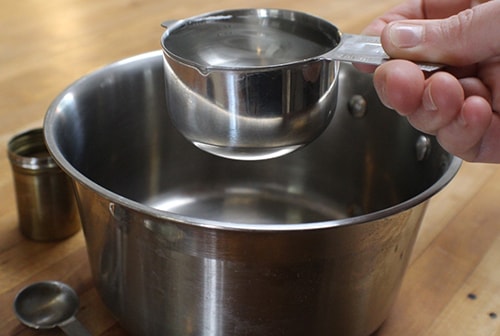
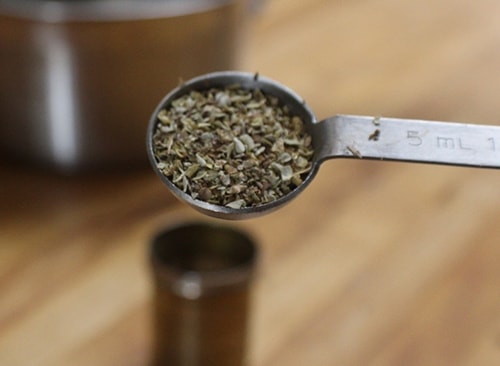
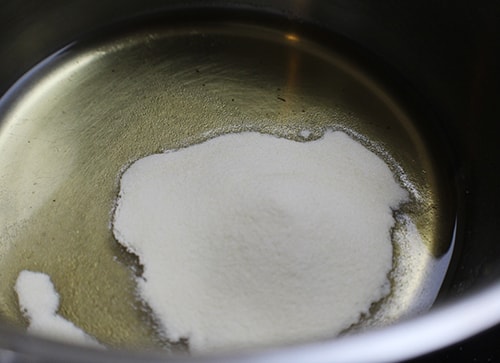
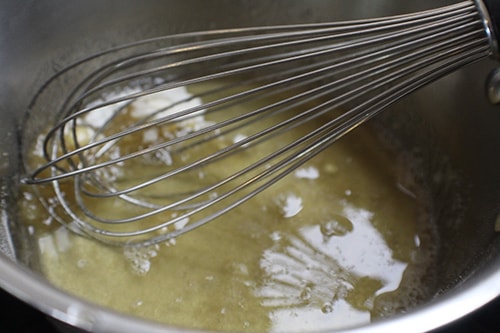
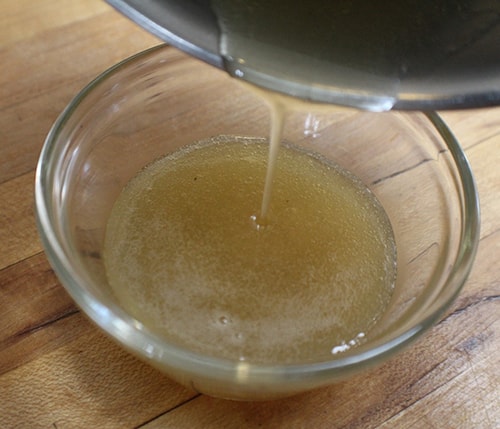
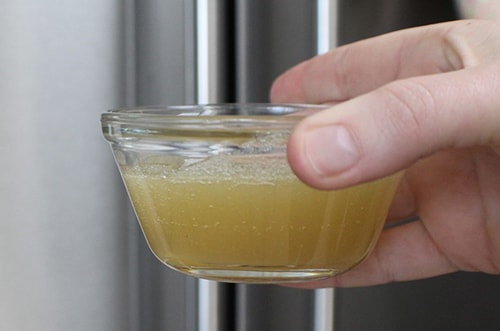 Remove your gel from the refrigerator and place it on a nightstand next to your bed.
Remove your gel from the refrigerator and place it on a nightstand next to your bed.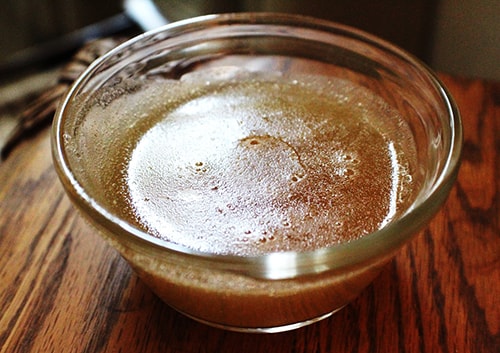
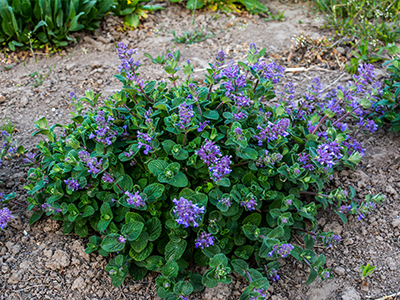
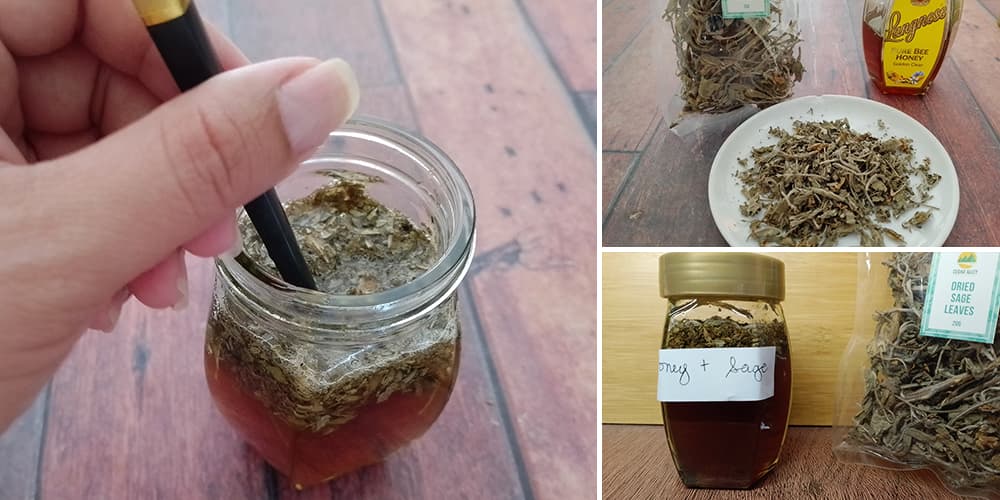
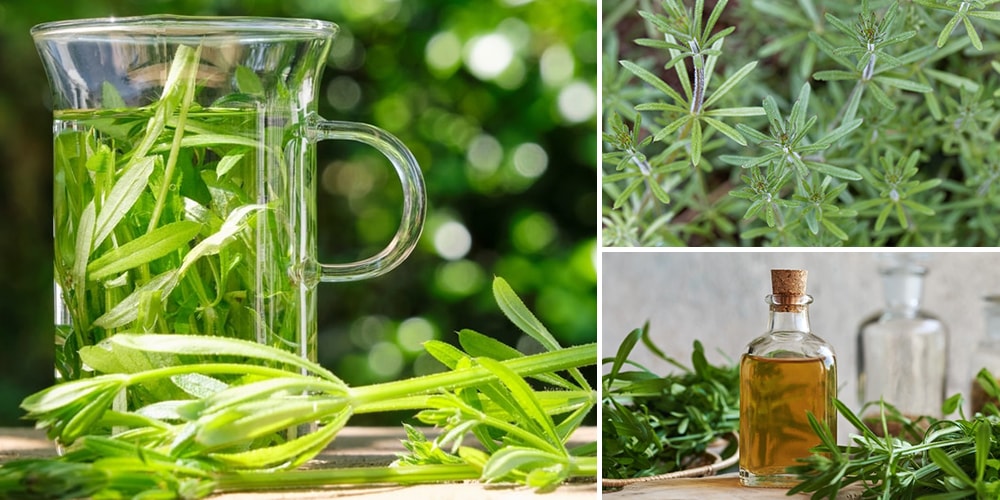
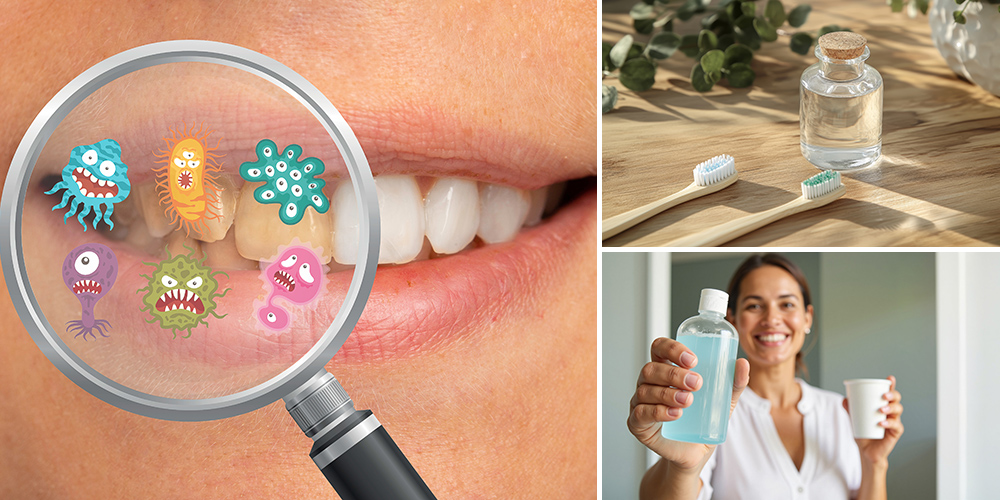
thank you so much for this.
Can I use aloe Vera gel instead of water + gelatin powder?
I was also wondering if I could use bees wax or coconut oil instead…
Hi Sydney,
Yes, you can make a salve using coconut oil and beeswax, instead of making jelly.
Many blessings and good health!
Hi Barbara,
Yes, you can use Aloe Vera gel instead.
Many blessings and good health!
Does the beef gelatin offer some particular property other than thickening? Hoping to try this with agar agar instead for a vegetarian version. Thanks
Hi Monique,
Agar agar is a great substitute.
Many blessings and good health!
How long can I use the jelly ? Or do I need to make it for every night? Thank you in advance.
Hi Gigi,
The essential oils in this jelly may irritate your skin if used for a prolonged period. You’ll have to try it yourself for a few days and see how it works for you, and if the snoring gets any better.
Many blessings and good health!
Have you done anything on healing mucosal lining?
Hi Carol,
Some herbal remedies that have mucus-like properties that help to coat the irritated mucosa include Licorice, Marshmallow root, Slippery Elm, Mastic gum, Mullein, Okra, and Comfrey. Aloe is also one of the best-known home remedies for an irritated gut. It physically coats damaged areas of the lining and prevents future irritation – allowing healing to begin.
Many blessings and good health!
I am allergic to eucalyptus. Do you have a suggestion for an alternative?
Hi Angela,
There are several essential oils that can be used as a substitute. For example, rosemary, tea tree oil, peppermint oil, and lavender oil are all excellent substitutes. Bay laurel and tea tree are the closest scent substitutes to eucalyptus, but they smell more medicinal than eucalyptus.
Many blessings and good health!
All I can find in the stores near me is pork gelatin. Is it OK to use it?
use Aloe Vera gel instead.
One more question. You mention an herbal steam inhalation… please share some details about this:)